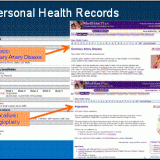How are health records used in a lawsuit?
Overview
If you suffer from an injury or disability, you will likely receive care from one or more health care practitioners. You will probably be aware that a health care practitioner typically makes records each time you see him or her. These records typically document your comments, the health care practitioner’s findings and the health care practitioner’s diagnosis and opinion. These records help both the health care practitioner who makes the records and any other health care practitioner who receives the records to provide appropriate care to you.
If you are involved in a lawsuit arising from your injury or disability, you may not be aware that these health records are also important to your lawsuit. This article briefly discusses some of the principal ways your health records will be used in this type of lawsuit.
Early Stages Of A Lawsuit
In the early stages of a lawsuit, your lawyer will typically write for most of the relevant health records. This may include records made both before and after the injury or disability that is the subject of the lawsuit. Your health care practitioners will provide your records to your lawyer as long as you have provided an appropriate consent permitting them to do so. The opposing lawyer (typically representing an insurance company) will sometimes ask your lawyer to obtain and provide additional records. There are rules and legal principles to help determine which health records must be produced in a lawsuit, if the lawyers cannot agree. These health records help the lawyers understand the case. They will also provide context and support for the claims you are making in the case.
At Discovery
An “examination for discovery” is a question and answer session in which every party will be asked questions relevant to the case, under oath or affirmation. When you attend for your discovery, the other lawyer typically will already have a significant number of your health records. The other lawyer will ask you questions about the records. It is important for your lawyer and for you to be familiar with the information in these records before attending for discovery.
Expert Opinion
To help determine the extent of your injuries and impairments and your potential needs arising from those, the lawyers will typically arrange to obtain “expert opinion” from various professionals, often including medical doctors and other health care practitioners. To provide an appropriate opinion, an expert needs to review relevant documents. An appropriate set of health records is one of the most important sets of documents that a health care practitioner will rely on in providing an expert opinion.
At Trial
The large majority of lawsuits in British Columbia settle before reaching trial. Nonetheless, if your lawsuit reaches trial, your health records will be relevant to the trial in a number of ways. They are often filed with the judge and jury so that they can review them. Both you and other witnesses may also be asked questions arising from the health records.
In addition, the health care practitioners who made the records may be asked to attend trial and testify. Sometimes they will testify simply based on the records that they made on an ongoing basis. In other cases, your lawyer may have asked your health care practitioners to prepare more detailed written reports commenting on the issues in the case. If a health care practitioner has prepared such a report, he or she can generally testify about issues raised in the report as well as with respect to the records. The opposing lawyer will be able to ask your health care practitioner questions.
Summary
As you will see from the above, health records play an important role in the typical lawsuit arising from injury or disability. It is therefore important for you to be accurate and detailed when you are relaying your symptoms and medical history to a health care practitioner. The more accurate and detailed you are, the more accurate and detailed the health care practitioner’s notes will be. Not only will this assist you in obtaining the best possible health care, but it will also help establish and corroborate the claims that you may be obliged to make in your lawsuit.





